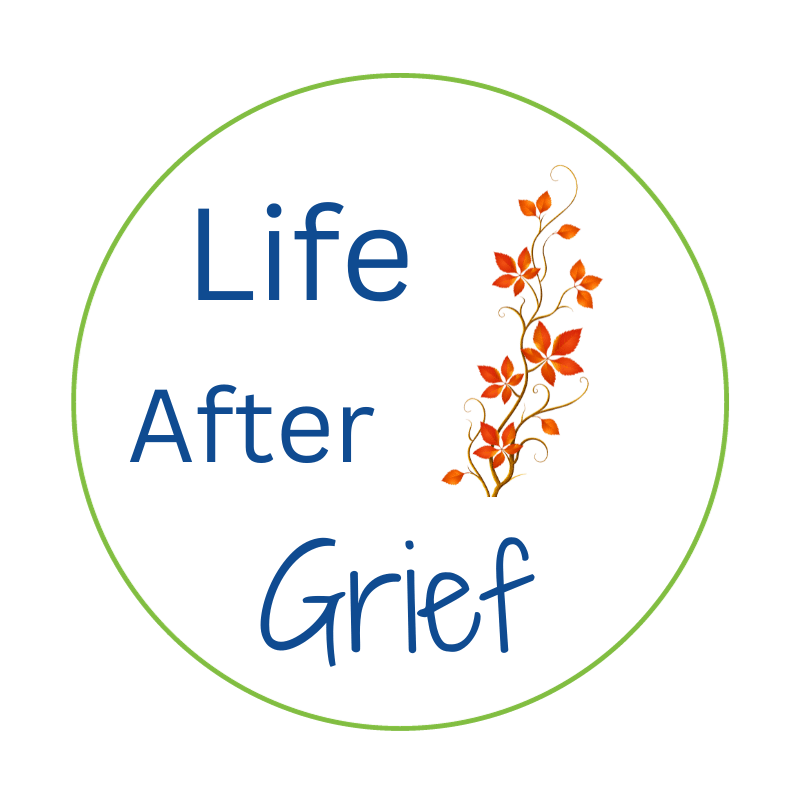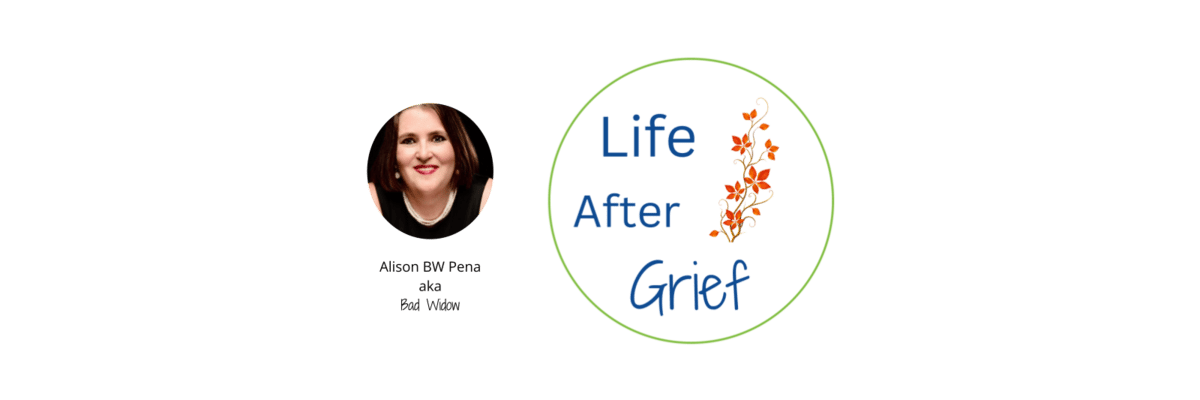
Hi and welcome,
Cumulative grief, according to this article from The Center for the Grief Journey is defined as, “when a person suffers several losses or several deaths close together. This makes it impossible for the individual to recover from one loss quickly because another happens. It also occurs when there is not a healthy recovery from a first loss. Therefore, a subsequent death years later can reopen the first wound.”
Since there is no time or capacity to process the first loss, a snowball effect ensues which confuses the person grieving and lengthens the grief process. Cumulative grief is complicated. Let’s face it, any grief is.
How can you move forward through the pain and take back your life, when the hits keep coming without a pause to take a breath?
Ask Me How I Know
I have myself grieved the losses of:
Pets
My brother, Alec
All my grandparents
All my aunts and uncles
My father
My husband
Friends
Cousins
Everybody dies and everybody loses people they love, sooner or later. Yet lots of people are uncomfortable with the idea, so we try not to think about it or talk about it. Then someone we love dies and we aren’t prepared.
Pets count and are many people’s first experience with grief and loss. Jiffy, our dachshund, chased a squirrel and jumped off a rock while I was at sailing camp. I came home and he was gone. He used to curl up with me in the curl of my tummy under the covers, comforting.
My brother, Alec, died of a genetic enzyme deficiency when he was 23 and I was 25. He was a camp counselor, riding in the rodeo on the last day of camp and keeled off the horse after coming in 3rd. I wondered why him instead of me. I paid attention to appreciating the ones I loved after that, for a while.
My father’s mother, my grandmother, Danny, died a few months later, the day of Alec’s memorial service. His father passed away before that, cancer, but we weren’t close so it didn’t have much of an impact on me.
My mother’s mom, Grandma, died of Lou Gehrig’s disease and I was with her when she decided to stop eating. I stood up for her wishes to not be force-fed in the retirement facility, until Mom and Grandpa got back from Maine.
My aunts on my father’s side, Sheila and Elinor, both died of breast cancer. My mother’s sister, Alison, whom I am named for, had a stroke in Tangier while she was speaking on a panel about her book on the role of women in the Moroccan Revolution.
David, my artist husband, died in 2016 of Stage 4 pancreatic cancer. He left me his studio of paintings and his mother. We were together 25 years, married for 20, and his loss gutted me. With these many losses, I have moved through layers and layers of grief, and learned its lessons, one-by-one.
David’s mother is now 100 and I’ve been her primary caregiver since he passed away. In the past 5 years, we have grown to love each other (although we had a tough, competitive relationship before David died). When she eventually dies, I won’t just lose her, I will lose my last link to David too. Now is about anticipatory grief before the end.
WOW, looking at the losses all written down, it’s a lot! You may have more or fewer losses of important people in your life. Understanding how to come back from the grief matters.
Why Is Cumulative Grief So Complicated?
Relationships Don’t Exist Alone But as Part of a Community
Handling the How, When and Why - some causes of death can make a loss even harder, such as in the case of a suicide, accident, natural disaster or school shooting. Unexpected, sudden death like a stroke or after a long illness like cancer. Being estranged, even divorced, can leave regrets, guilt, shame or blame for things undone or unsaid, for mistakes unforgiven.
Reinventing Yourself - people exist in networks of relationships so, when one is gone, it changes the entire fabric of the community. We are ourselves but we also think of ourselves in connection to other people - mother, father, parent, sister, brother, friend, spouse, grandparent, cousin, other family member. Who am I after they are gone? Have my role and responsibilities changes with their absence?
Weathering All the Memories - Memories are everywhere - in the belongings they leave behind, the songs you shared, the places you went, the people you spent time with together. It can also be scarred by fighting over how to divide the stuff, what the words in the will mean, what to do if they never said what they wanted.
Grieving Through the Connections - Sometimes the reactions are hurtful. People step up or step back. Sometimes it’s wonderful to be with family and friends you enjoyed, and sometimes it’s not. Sometimes people are comfortable saying their name and telling stories about them (or not). It gets easier once you can accept that nobody is good at these conversations and there is no ‘right’ way. Just do your best and be gentle with yourself.
Rebuilding Your Community After Your Loss - That person who is gone filled a space in your life. They were the one who you talked about certain things with and who joined you for the activities you both loved. Maybe they were an important thread, which held your family or group of friends together, and now everything is coming apart. How can you maintain your relationships when you are grieving and miss them so much?
Cumulative loss is complicated by experiencing more than one loss in a row or connected losses across time. This happens because every relationship is unique and leaves different holes in your life - how you interacted with each other, what you did together, how you left it (was there anything left for you to regret or forgive?)
Everyone grieves in their own way. There is no ‘right’ way. Give yourself some grace and time to heal. Mistakes will be made… and it’s OK. I made it through my own grieving and so will you.
This newsletter issue, Moving Through Your Cumulative Grief, offers just a few tips on cumulative grief so you know you are not alone.
It doesn’t address your specific situation, how you are grieving your losses now and where you may be getting stuck. It doesn’t address what you want.
My clear and easy 5-step Heartbreak to Hope Blueprint can help you to re-engage, reconnect, reinvent, rebuild and reset your path forward by moving forward through your grief proactively.
Schedule a complimentary Grief Resilience Assessment with me at https://thebadwidow.com/ConnectWithAlison to find out more.
P.S. I wrote this poem about my relationship with my mother-in-law in The Bad Widow Guide to Life After Loss: Moving Through Grief to Live and Love Again. It’s all about loss, longing and love. Not simple. Enjoy!
Her 98th Birthday
Pitched battles when my husband, David, was alive
His mother tugging him,
like a taut rope in a children’s game,
Feet braced I, on the other end, his wife.
Hard words, slammed doors, misunderstandings,
For ten years, he took her side, decades of history in play.
Then the tide turned. In the end our love prevailed,
He and me, a triumph bittersweet.
The man we both loved, was gone.
Leaving us each other, wife and mother,
A promise made.
He always planned extravaganzas on her birthday.
Now it’s up to me to transform the celebration,
So much theirs, and make it ours without him,
Sadness into light.
Love came hard between us but it came for us,
since David died, a peculiar gift.
Her 98th birthday, a garden party planned by me,
So many things go wrong.
That day the trees are sprayed with pesticides,
Torrential rain, not sun.
Love comes in different packages,
sneaks up unexpectedly,
sweet and sour.
Into the wheelchair, excited, she is ready to go,
Pouring rain, her favorite lavender sweater drenched,
By umbrella dripping,
“Brrr, an icy drop just slid down my neck,”
she shudders and laughs.
Running fast, almost flying,
dodging cracks, uneven sidewalk,
Scared I’ll dump her out, she shouts at me, apologizes.
Tells me she’s afraid I will go away,
if she gets angry.
When I take her home at six o’clock,
after carrot cake with friends
She says, “I think I love you more than ever before.”
I understand completely, thinking, “Yes, me too.”


